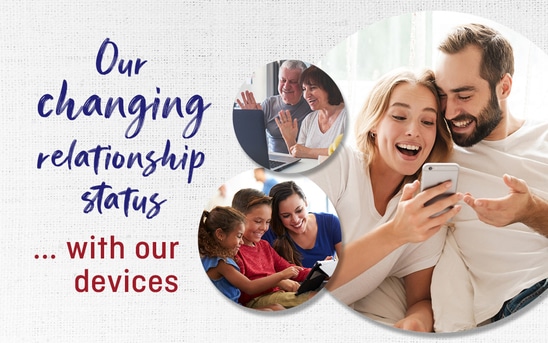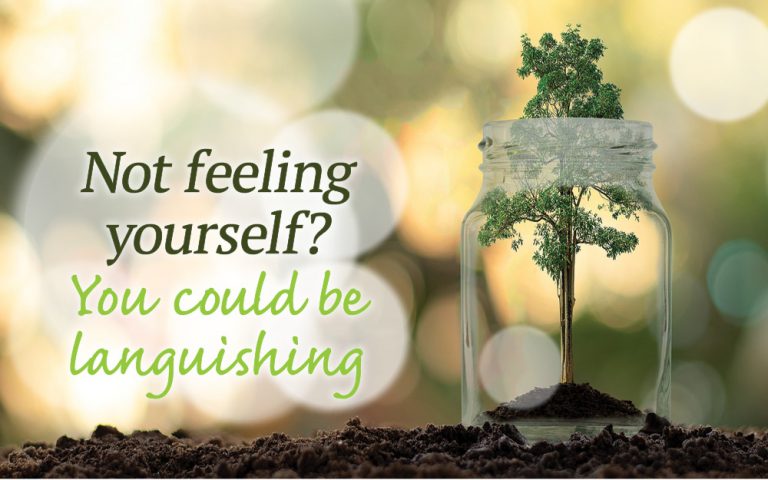If your New Year’s resolution was to spend less time glued to your phone, you’ve probably found that unexpectedly challenging this year. While the impact of COVID-19 differs from state to state, many of us have experienced social isolation and the call to stay and work from home where possible, resulting in an increase in the amount of time we are spending online.
In fact, data demand over the NBN increased by more than 70 to 80 per cent during daytime hours in March compared to figures calculated at the end of February. Due to greater usage, internet speeds across Australia slowed to cope with the uptake.i
It’s not just the time we are spending online that’s being impacted, our relationship with technology is evolving as we adapt to the changing world around us.
The benefits of technology
While technology usage often gets a bad rap when it comes to mental health, it has also brought positives into many of our lives, especially during 2020: greater work flexibility, connection to loved ones, and access to online resources and support groups.
During social isolation, many of us relied on technology to keep our lives as normal as possible. For some that meant working from home, keeping up a regular exercise regime with online classes, or having a regular video chat scheduled with family and friends.
Changing nature of how we use our devices
Technology has stepped up and is filling the gap in areas we previously hadn’t relied on it for. With gyms and boot camps off limits across many parts of Australia during stages of lockdown, online workouts started popping up on platforms such as Zoom and Facebook.
Online shopping is understandably booming as the trend away from ‘bricks and mortar’ retail quickens pace and people embrace the convenience and safety of shopping online during pandemic conditions. Based on Australia Post deliveries, there was an 80% increase in online shopping during the months of April and May.ii
When concerts were cancelled and movie theatres and galleries closed, we also turned to our devices increasingly for entertainment. Netflix saw a boom in their subscribers, up a whopping 15.8 million users in April, while Instagram Live was up 70% in the US in March.iii, iv
Transforming how we work
Many workplaces have had to put in place processes to support working remotely. Prior to the pandemic, besides face-to-face meetings, most workplace correspondence was done via email or phone. Due to social isolation and increased feelings of loneliness as a result, video meetings and catch-ups have become more of the norm. The cameras on our phones and computers have been able to make us feel more ‘in person’ as a result.
Collaboration has also been on the rise, with collaborative platforms and online communities such as Slack, Asana and Trello making it easier to work together while we’re apart.
Looking out for others
Much of our online activity has tended to be a reflection of our self-absorption. The ‘it’s all about me’ approach of many influencers and content creators was tempered during the crisis by a more giving approach. We saw an outpouring of generosity, from entrepreneurs offering time to listen to pitches, master yoga instructors teaching Complimentary classes and musicians performing regular concerts. People have banded together to keep us feeling connected.
Local communities used technology to engender a sense of support and inclusion, with groups springing up to assist others in a myriad of ways such as offering to shop for those who were in isolation, providing Complimentary produce from gardens, or toilet paper for those who missed out in the panic buying frenzy early in the pandemic, to just making sure that everyone in the community had a ‘voice’.
Our relationship with our devices and the way we conduct our digital lives is ever-evolving. If we take the positives that have come from the way the crisis has influenced our lives in the digital realm, we’ll continue moving in a direction that not only makes our lives easier but also supports genuine human interaction.
iii https://www.abc.net.au/news/2020-04-22/netflix-warns-record-users-will-not-last/12171800





































































